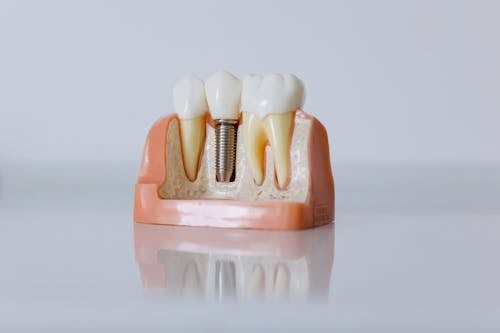Exploring the Real Cost of Dental Implants: Are They Worth It?
Dental implants offer a unique solution for missing teeth, but potential patients often grapple with their cost. This article delves into the various factors affecting the cost of dental implants, including geographical pricing disparities and the importance of choosing experienced professionals. By weighing these factors, individuals can determine if dental implants are a worthwhile investment for their oral health.
Breaking Down the Cost of Dental Implants
When contemplating the cost of dental implants, understanding how the total price is broken down is pivotal. Typically, the cost comprises several components: the surgical procedure, the implant material, the crown, and any necessary pre-procedural work. The cost of dental implants can vary significantly based on individual circumstances, including the complexity of the case and any additional treatments required. In some instances, patients might need to undergo preparatory work such as bone grafting, which can add to overall expenses. Thus, recognizing these components can provide a clearer picture of what to expect financially.
Geographic Influences on Dental Implant Pricing
Geographic location plays a crucial role in determining the overall cost of dental implants. For example, urban centers often feature higher prices due to increased demand and elevated overhead costs for dental practices. In contrast, rural areas may offer more competitive pricing, sometimes presenting a significant discrepancy. This geographical factor also has a ripple effect on patient accessibility; those in higher-cost areas may feel pressured to seek treatment elsewhere. By researching and comparing prices across different locations, patients can ensure they make informed financial decisions regarding the cost of dental implants.
The Role of Material Quality in Overall Costs
Material quality dramatically impacts the cost of dental implants. Higher-grade materials, such as titanium, are often more expensive, but they provide enhanced durability and a more natural look. Investing in superior materials can reduce long-term costs associated with replacements or complications. When evaluating the cost of dental implants, it is essential to weigh the benefits of choosing high-quality materials against the initial financial outlay. Patients should also consult with their dental professionals to find a material that aligns with their budget and long-term dental goals.
Understanding the Importance of Experienced Professionals
Selecting a qualified dental professional is a fundamental step in managing the cost of dental implants. While experienced surgeons may charge more for their services, their expertise often translates into fewer complications during and after the procedure. Moreover, skilled professionals typically employ advanced techniques that enhance safety and efficacy. Making an informed choice about your dentist not only impacts the cost but also the overall quality of care. Thorough research, including reviews and credentials, can ensure that patients receive optimal care while managing costs responsibly.
Financing Dental Implants: Accessible Options
Despite the significant cost of dental implants, several financing options exist to make them more accessible to the average patient. Many dental clinics provide flexible payment plans that allow for manageable monthly payments without crippling one-time costs. Additionally, some health care credit programs are specifically tailored for dental procedures, helping patients handle the financial burden. Exploring these financing avenues can alleviate anxiety over upfront costs, empowering individuals to seek the dental care they deserve. Understanding and utilizing financing options can greatly ease the process of obtaining dental implants.
The Value Proposition of Dental Implants
While the cost of dental implants may appear high at first glance, considering their long-term benefits can reshape perceptions. Unlike temporary solutions such as bridges or dentures, dental implants offer a longevity that can last for decades. Moreover, the stability and functionality they provide make them a more effective solution for tooth loss. Ultimately, the question of whether dental implants are worth the cost hinges on individual circumstances, including one’s oral health needs and lifestyle. By evaluating both the financial and health-related aspects, patients can make informed decisions about their dental investments.
